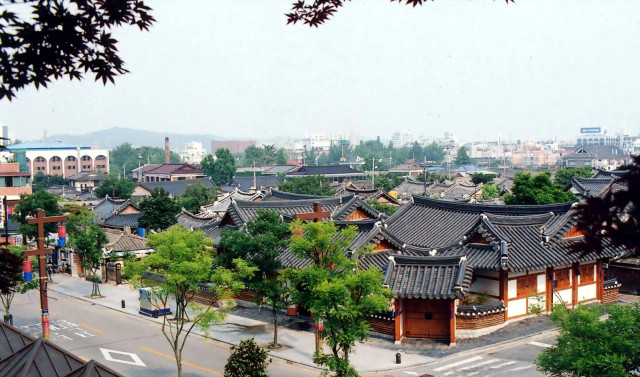Jeonju: A Must-Visit Destination for Korean History and Culinary Delights
Jeonju is rich in cultural treasures and historic landmarks steeped in history and culture.
JEONJU, South Korea--(뉴스와이어)--Jeonju City, a prominent tourist destination in Korea with more than 10 million annual visitors, is a hub of Korean culture where Korean authenticity is best preserved.
Jeonju, officially named in 757, is one of the regions with deep roots in Korean history. The city retains an extensive history and traditional culture as the foundational city of the Joseon Dynasty.
Jeonju is rich in cultural treasures and historic landmarks steeped in history and culture. Jeonju Hanok Village, Gyeonggijeon, Pungnammun Gate, Pungpaejigwan (Jeonju Guesthouse), and Jeolla Gamyeong are located in the center and Jeonju IC, Jeonju Station, and Honam Jeilmun Gate, each of which serves as a primary gateway to Jeonju City, feature in the form of hanok.
Jeonju, designated as a UNESCO Creative City of Gastronomy, is a representative gourmet city. Jeonju is the home of Korea‘s iconic dish, bibimbap, and is a destination for epicurean travel where you can taste a variety of foods from bean sprout soup to Korean Table d’hôte.
In Jeonju Hanok Village, where tourists with Korea's distinctive clothing Hanbok stroll the streets, traditional Korean music performances such as pansori, fusion Korean music, and Joseon pop that bring a modern sensibility to traditional music, are available all year round.
Jeonju is the city with the largest number of living national treasures in Korea. You may experience exquisite products manufactured by craftsmen in this world-class intangible heritage city, which houses the National Intangible Heritage Center and ICHCAP under the auspices of UNESCO. Jeonju is also a significant manufacturer of “Hanji,” a paper that has gained global recognition.
Jeonju, a city also known for its festivals, holds the ‘Jeonju International Film Festival’ every spring, as well as a variety of cultural events and festivals that embody Jeonju's uniqueness throughout the year, such as the Jeonju Bibimbap Festival, Jeonju Hanji Culture Festival, Jeonju International Sori Festival, and Jeonju City’s representative festival Jeonju Festa.
Woo Beom-ki, Mayor of Jeonju, said, “Based on its historical assets and cultural capabilities, Jeonju is striving to showcase the most authentic history and strengthen its identity by preserving valuable assets while boldly innovating what needs to be changed. I hope tourists will have wonderful experiences and memories in Jeonju, the most Korean city where tradition and modernity coexist.”
‘Your Taste Jeonju’ Jeonju Cultural and Tourism website: https://tour.jeonju.go.kr/eng/index.jeonju



